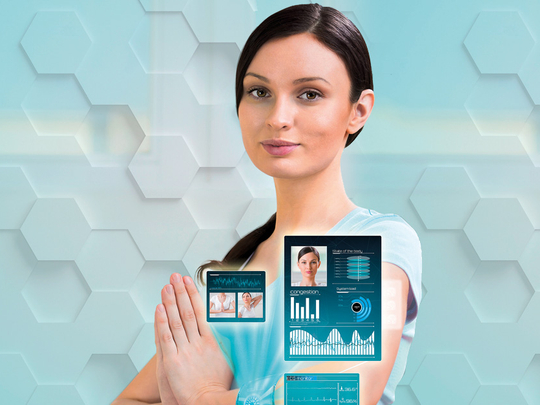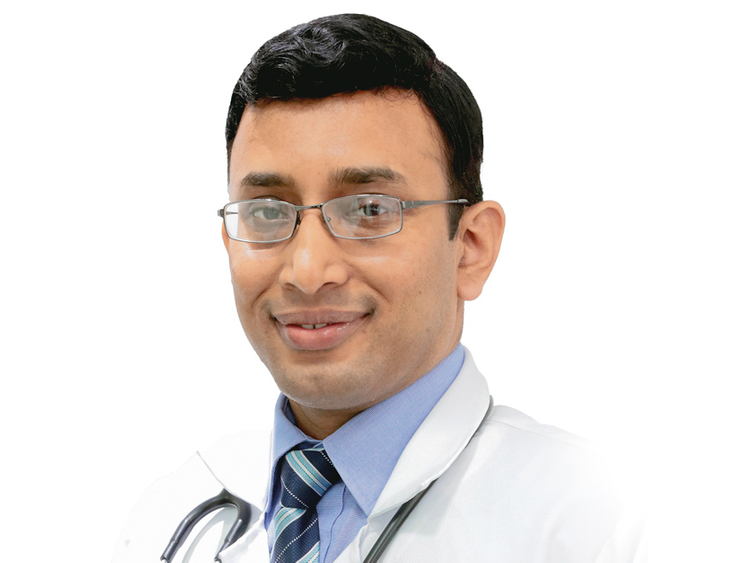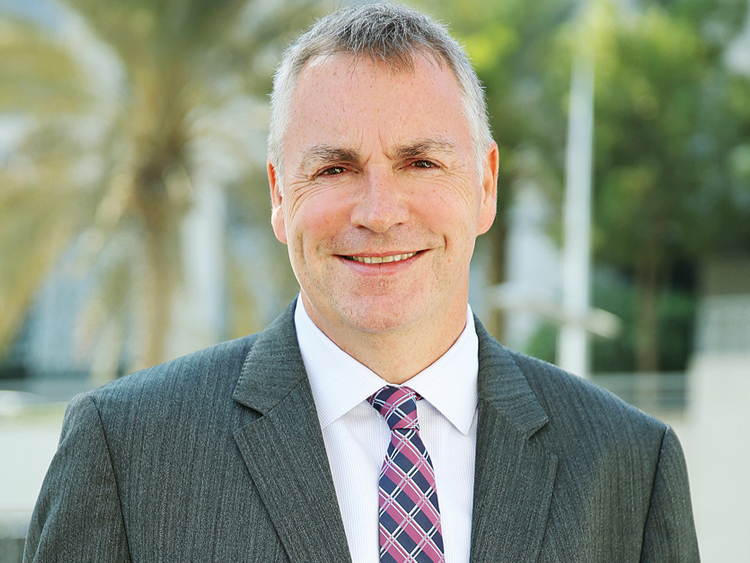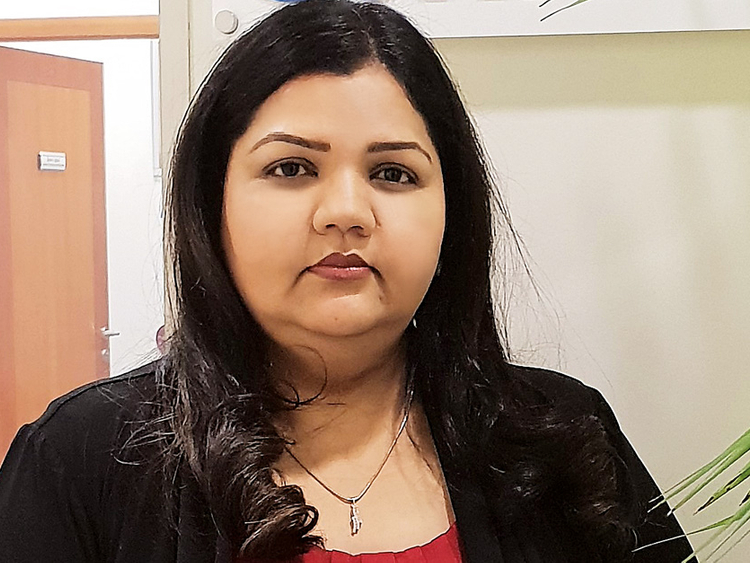
“The future is definitely bionic. No doubt about it.” Dr Arun Asok Cheriyan, Specialist Cardiologist at Aster Jubilee Medical Centre, Bur Dubai, says that the cardiovascular patient of the future will be bionic, with gadgets on her wrist monitoring heart rate, blood pressure and oxygen saturation. Meanwhile, a patch on her chest will track ECG, respiratory-related thoracic impedance and will probably be capable of delivering a DC shock to revive the patient.
Digital future
This wearable menagerie might also include a pinprick blood analyser, probably the size of a visiting card, that is capable of rapid analysis of blood sugar, pH and blood chemistry. And all these devices will seamlessly hook up with the patient’s smartphone or smartwatch, which in turn will be able to immediately alert the healthcare provider or ambulance services.
“The digital revolution and advancement of mobile phone technology has deeply impacted cardiac care,” adds Dr Cheriyan. “Constant connectivity to a high-bandwidth data network has been harnessed for the purpose of advancement of healthcare in a big way, the impact of which is yet to sink in.”
He sees a bright future for devices that can measure heart rate, blood pressure, temperature, respiratory rate and oxygen saturation in less than five seconds and transmit it to an application-enabled smartphone, which can then relay this information to the treating physician. “This is a big step in the approach to a patient with heart failure, especially one who is at increased risk of repeated hospital admissions for heart failure,” explains Dr Cheriyan.
Howard Gough, CEO — Europe Middle East and Africa, Global Health Solutions and Global Government Solutions, Cigna, says healthcare technology is at a “critical inflection point” across the world, with new advances in the field paving the way for unprecedented health outcomes.
“With cardiovascular diseases causing more deaths worldwide than any other health condition, the focus on applying innovation for better health management is on the rise,” he says, adding that health technology itself occupies a full spectrum of possibilities, ranging from a heart health tracker to big data analysis using AI to review and control the incidence of the condition among populations that are at high risk. “In either instance, the collection, sharing and analysis of data allows for patients, doctors, payers and even regulators to observe and understand vagaries. This level of information mining was never possible before.”
Wearable innovations
However, Dr Cheriyan cautions that remote monitoring using wearable tech has not picked up significantly in the UAE, since personal health information is heavily protected here — data security remains a key concern since these devices rely on mobile and cloud-based technologies. Besides, the cost-effectiveness of such protocols has to be weighed against insurance approvals and reimbursements.
“As in Europe, the US or Japan, the availability of wearable cardiac monitors is not in the mainstream yet due to a lack of robust validation and cost-effectiveness. Moreover, physicians and healthcare providers should be primed and open to accepting these newer gadgets. They should also be well-aware of their limitations and usefulness.”
Shilpa Rosario, General Manager Middle East and Africa, Omron Healthcare Middle East, explains, “Consumers need to be aware of the levels of accuracy and quality of those wearables helping them track their heart’s health. Information has to be valid and reliable.” She asserts that consumers are increasingly demanding more sophisticated, accurate and novel metrics, and with the help of big data and big learning, healthcare technology is expected to support personalised medical treatment and increase compliance, which in turn can help increase life expectancy.
“The good news: consumers are willing to pay if they perceive high value and, incrementally, we expect doctors to be willing to recommend devices that complement monitoring and treatment outside their offices.”
Consumers will also want to turn the information provided by wearable tech into clear actionables. “It’s not only knowing what matters to them but also being told what to do to improve and get better.” Rosario points to the recent update of the brand’s app, Omron Connect, which now includes a blood pressure diary called My Journal. “Providing consumers with reminders and recommended target values, My Journal can help them keep their blood pressure levels under control and gain a better insight into their cardiovascular health over time.”
Future of health
Gough agrees. He observes that most devices available in the market today go as far as allowing consumers to track their health. “However, the next step — which is diagnosis and then treatment — often goes unheeded.” The Cigna Wellbeing app, for instance, attempts to close this gap by offering health risk assessments, including heart health tracking, which link to dietary and exercise recommendations that are customised for the user.
Looking ahead, Dr Cheriyan predicts that the UAE is definitely well-positioned to be a large consumer of wearable cardiac care devices, due to its varied population base, health awareness, good infrastructure, robust wireless connectivity and easy access to healthcare.
Gough adds that the UAE is a relatively young market, but it currently has all the right conditions to disrupt healthcare and set a global benchmark. “The UAE Vision 2021 calls for world-class healthcare, including a reduction in deaths caused by CVDs. ” Besides, the UAE’s healthcare market is set to grow exponentially, with MENA Research Partners estimating that the sector valuation will surge from current levels of $17 billion (Dh62 billion) to over $28 billion by 2021.
In short, our bionic future might be here earlier than expected.















